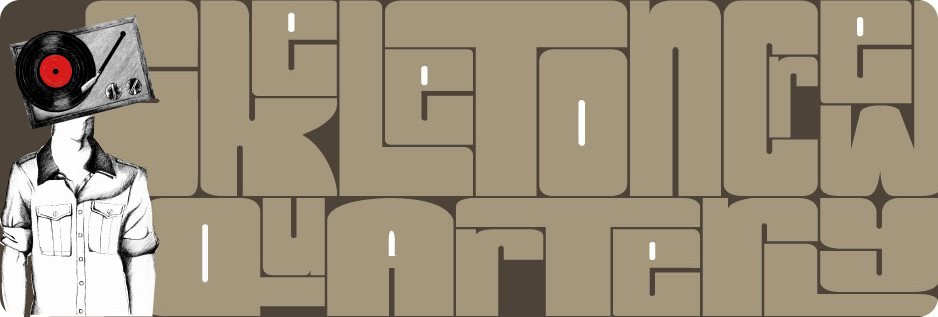
Narrow Stairs
Death Cab for Cutie
Atlantic Records.
SCQ Rating: 78%
For all its hype of displaying muscular guitars and matured rock songs, sixth album Narrow Stairs opens like their last two: a heavenly bed of ambience quickly topped by comforting guitar tones and a memorable lyric hooked by Ben Gibbard. The song, ‘Bixby Canyon Bridge’, is an encouraging establishing shot, fitting tight to the DCFC mold but lovely in that well-worn skin. Then, a minute-thirty-something in, that polished balladry jumps the cliff in favour of an undercooked electric powerchord and a rising sheet of white noise. That the song survives and rebounds from what initially appears to be the band’s intentional destruction of a typical DCFC template is revealing; this is a band willing to tear themselves apart (let’s face it, ‘Bixby Canyon Bridge’ could’ve been the sad-bastard successor to ‘Transatlanticism’ with drooling fans in tow) and more importantly, rebuilding themselves as something greater.
Not to say that Death Cab for Cutie are unrecognizable here in the least. At their most rebellious, of which the eight-minute lead single is likely the best contender for controversy, the band remain melodically centered and Ben Gibbard sounds ever so pitch-perfect. The change is most apparent in their direction, as songs like ‘You Can Do Better Than Me’, ‘Grapevine Fires’ and ‘The Ice is Getting Thinner’ present a musicianship too laid-back to be labeled emo and themes (the wisdom and regret that come with age) best-suited to their actual generation. Where Plans often felt like a cloning exercise on past achievements, Narrow Stairs is refreshingly honest, a see-sawing work of considerable depth and resonance.
Word is that Gibbard isolated himself along the west coast to write these lyrics, and despite the black period that encouraged this decision, songs like ‘Cath…’ feel well-worth any painstaking travels. ‘No Sunlight’, by far the most poppy, backward-looking track on record, is perhaps the most depressed; a poignant ode to losing the vigor of youth with each passing year. In these instances of Gibbard’s gloom, his band steps confidently forward, adding appropriate doses of eeriness on ‘Talking Bird’ and grandeur to ‘Pity and Fear’s heavy mantra. Even when Gibbard’s trademark nerdiness peers through on ‘Long Division’ in a chorus that worries about becoming “the remainder” of a relationship (get it?!?), the band’s propulsive rhythm will make you sing those locker-scrawled lyrics without hesitation.
Where most bands seek integrity by changing their sound to challenge listeners and perhaps weed out the casual ears, Narrow Stairs takes on an opposing doctrine: rework their faultlessly addictive sound into a record that proves they’ve earned it, so that the only complaints haters can muster is that they’re too easy to listen to. The hype’s half right. Narrow Stairs isn’t the most important record of their career because it’ll make or break them. It’s their most important record because it’s their best.











